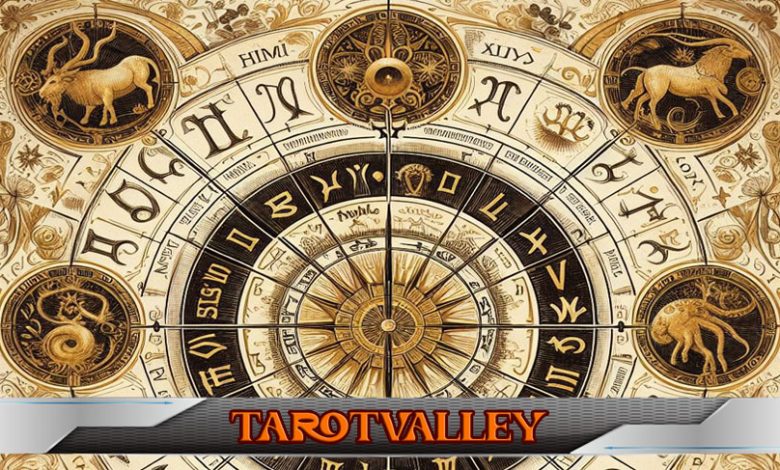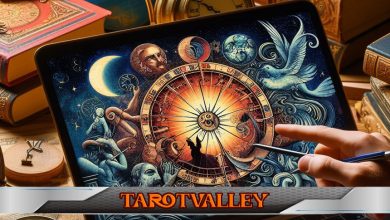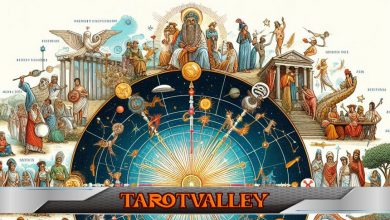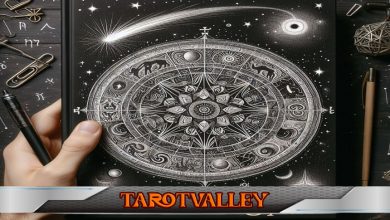
Ancient civilizations, collectively with Greece and Rome, have left an indelible mark on the development of astrology, shaping its standards and practices that preserve and steer current-day ideals and interpretations. The intertwining of Greek and Roman astrology offers a charming adventure into the celestial realms of these historical societies, wherein the alignment of stars and planets held profound importance in guiding men’s or women’s destinies and shaping collective worldviews. Exploring the origins, key ideas, and cultural effects of Greek and Roman astrology illuminates not only the complexities of those ancient belief structures but also their enduring legacy in shaping our understanding of the cosmos and human enjoyment.
Introduction of Greek and Roman Astrology
Astrology in ancient Greece and Rome wasn’t pretty much predicting your love lifestyle or financial success—it became a manner of lifestyle. People grew to become celebrities to understand themselves and their surroundings inside the universe. Let’s dive into the cosmic universe of Greek and Roman astrology!
Defining Astrology in historical Greece and Rome
Astrology in ancient Greece and Rome wasn’t a whole lot about predicting your love life or economic achievement—it became a way of life. Human beings turn to celebrities to recognize themselves and their location within the universe. Let’s dive into the cosmic universe of Greek and Roman astrology!
importance and features of Astrology in Ancient Societies
Ancient Greeks and Romans believed that the positions of celestial bodies caused human affairs. Astrology performed an essential function in everything from private selections to United States topics. It becomes like having your cosmic steerage counselor let you know when to spend money on olive oil and when to avoid chariot racing.
Origins and development of astronomy in historical Greece
Astrology in historical Greece didn’t simply pop out of Zeus’s head; it was completely shaped like Athena. It had humble beginnings and improved over the years, leading to the highbrow curiosity of ancient students.
The Beginnings of Astrology in Ancient Greece
Ancient Greek astrology commenced with observations of the night sky and the movement of celestial bodies. Early astronomers like Thales and Anaximander laid the foundation for what would become a cosmic obsession for the Greeks.
Key Figures in the Development of Greek Astrology
Aristotle, Ptolemy, and different historical Greek thinkers took astrology to the next stage by developing complex theories and systems to interpret the movements of the celebs. They were similar to the historical geek squad of the cosmos, deciphering the universe one zodiac signal at a time.
Key concepts and requirements in Greek Astrology
Overlook approximately the current horoscope blurbs you read in magazines. Greek astrology became an exceptional ballgame. It worried about approximately complicated structures and requirements that would make your head spin quicker than Earth across the sun.
Zodiac signs and symptoms and Planetary influences
Historic Greeks believed that one-of-a-kind zodiac signs and planets stimulated human conduct and destiny. Your future wasn’t, in reality, written within the stars—it became almost stamped with a cosmic seal of approval.
Astrological Homes and Interpretations
Astrological houses have been like awesome arenas wherein the cosmic drama of your lifestyle has been achieved. Every residence represents a one-of-a-kind element of your lifestyle, from relationships to professional potentialities. It turned out to be like living in a celestial reality, with the stars pulling the strings.
Influence of Greek Astrology on Roman Astrology
When it came to astrology, the Romans didn’t just conquer lands; moreover, they conquered celestial information. Greek astrology made its way to Rome, where it underwent a cosmic makeover to match Roman beliefs and traditions.
Transmission of Astrological expertise from Greece to Rome
Historical Greek astrology hitched a ride on the chariot of the Roman conquest, spreading throughout the empire like wildfire. Greek astrologers shared their understanding with Roman college students, paving the way for a cosmic fusion of thoughts.
A version of Greek Astrological Practices in Roman culture
Roman astrologers didn’t copy and paste Greek astrology—they positioned their spin on it. They combined Greek theories with Roman customs and ideals, developing a unique mixture of cosmic knowledge that might have an effect on Western astrology for thousands of years to come. It became like a cosmic remix that everybody wanted to bop to.
Roman Astrology: variant and Evolution
Improvement of Roman Astrology faculties
Inside the bustling streets of Rome, astrological schools flourished, offering a mixture of Greek and Egyptian teachings. Students eagerly soaked up the understanding, blending it with their Roman practicality to create a unique astrological method.
Incorporation of Roman Deities and Beliefs into Astrological Practices
The Romans had been recounted for their love of blending traditions, and astrology changed into no exception. They intertwined their venerations of gods like Jupiter and Venus with astrological practices, developing a celestial tapestry reflecting their wealthy, non-secular beliefs.
Astrological Practices and beliefs in historical Greece and Rome
Rituals and Ceremonies in Astrology
From sacrificing to the gods to problematic ceremonies under the starlit sky, the ancient Greeks and Romans spared no time in attempting to find desire in the heavens. Astrology was no longer the most effective way to observe information about a way of life intertwined with rituals and celebrations.
Divination techniques and equipment used in Greek and Roman Astrology
Whether it was analyzing the flight patterns of birds or casting hard horoscopes, the Greeks and Romans had an array of divination tools at their disposal. From tea leaves to crystal balls, they delved into the paranormal global with a mixture of hobby and reverence.
Evaluation of Greek and Roman Astrology
Similarities and versions in Astrological structures
At the same time that both Greek and Roman astrology shared foundational concepts along with the zodiac signs, they diverged in their interpretations and packages. The Greeks targeted philosophical musings, while the Romans leaned closer to pragmatic predictions.
Cultural and Social influences on Astrological Interpretations
The societal fabric of ancient Greece and Rome carefully endorsed astrological interpretations. Greek astrology pondered a philosophical outlook, mirroring their intellectual pastimes, while Roman astrology aligned with their militaristic and practical strategies.
Legacy and Effects of Greek and Roman Astrology
Continuation of Astrological Traditions in Western Society
The echoes of ancient Greek and Roman astrology can, however, be heard in modern-day Western society. From horoscopes in newspapers to customized shipping chart readings, the legacy of these ancient practices continues to captivate and intrigue.
Current-day Interpretations and Relevance of Ancient Astrology Practices
In an international push with the useful resources of technology and proper judgment, the resurgence of hobbies in historical astrology practices speaks volumes. Whether or not for steering or entertainment, humans discover solace within the undying know-how of Greek and Roman astrological traditions, finding relevance inside the stars of the day before today for the demanding situations of recent times. ultimately, delving into the Greek and Roman astrology know-how, a rich tapestry of celestial information that has stood the test of time. The echoes of historic beliefs and practices maintain resonance in astrological traditions, reminding us of the enduring legacy and profound effect of these ancient civilizations on our collective expertise of the universe and our region inside it. Through exploring the origins, dispositions, and cultural nuances of Greek and Roman astrology, we gain a deeper appreciation for the paranormal connections between the heavens above and the earthly realms below, bridging the beyond with the triumph of a timeless dance of cosmic importance.



